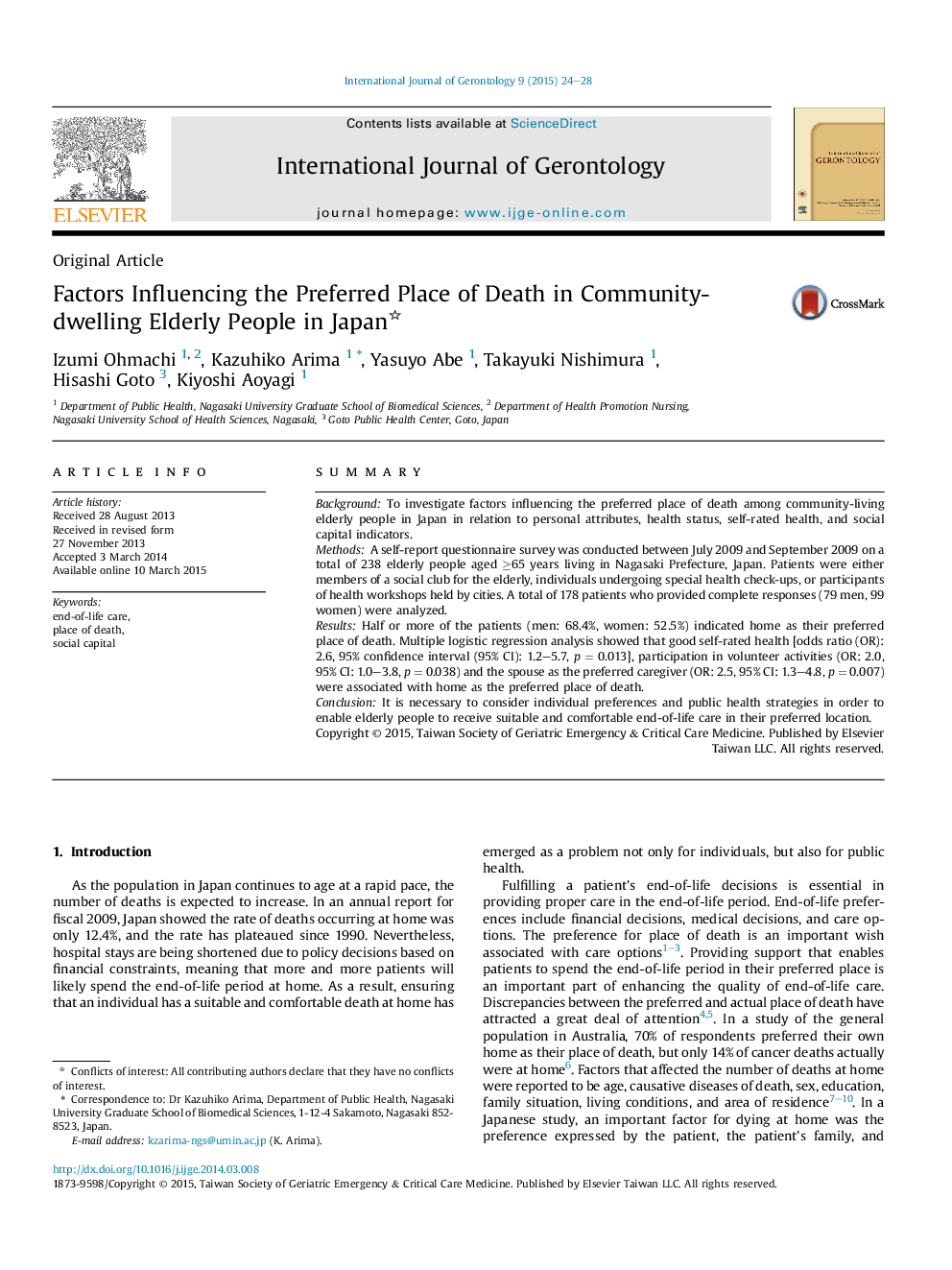| Article ID | Journal | Published Year | Pages | File Type |
|---|---|---|---|---|
| 3325279 | International Journal of Gerontology | 2015 | 5 Pages |
SummaryBackgroundTo investigate factors influencing the preferred place of death among community-living elderly people in Japan in relation to personal attributes, health status, self-rated health, and social capital indicators.MethodsA self-report questionnaire survey was conducted between July 2009 and September 2009 on a total of 238 elderly people aged ≥65 years living in Nagasaki Prefecture, Japan. Patients were either members of a social club for the elderly, individuals undergoing special health check-ups, or participants of health workshops held by cities. A total of 178 patients who provided complete responses (79 men, 99 women) were analyzed.ResultsHalf or more of the patients (men: 68.4%, women: 52.5%) indicated home as their preferred place of death. Multiple logistic regression analysis showed that good self-rated health [odds ratio (OR): 2.6, 95% confidence interval (95% CI): 1.2–5.7, p = 0.013], participation in volunteer activities (OR: 2.0, 95% CI: 1.0–3.8, p = 0.038) and the spouse as the preferred caregiver (OR: 2.5, 95% CI: 1.3–4.8, p = 0.007) were associated with home as the preferred place of death.ConclusionIt is necessary to consider individual preferences and public health strategies in order to enable elderly people to receive suitable and comfortable end-of-life care in their preferred location.
